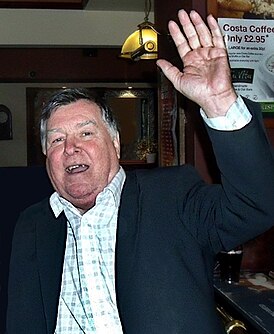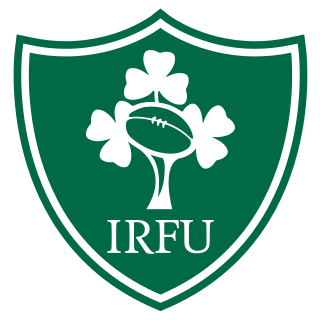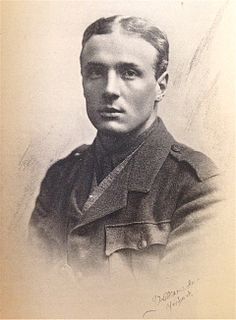Related Research Articles

The New Zealand national rugby union team, commonly known as the All Blacks, represents New Zealand in men's international rugby union, which is considered the country's national sport. The team won the Rugby World Cup in 1987, 2011 and 2015.

Barry John is a former Welsh rugby union fly-half who played, during the amateur era of the sport, in the 1960s, and early 1970s. John began his rugby career as a schoolboy playing for his local team Cefneithin RFC before switching to first-class west Wales team Llanelli RFC in 1964. It was while at Llanelli that John was first selected for the Wales national team, a shock selection as a replacement for David Watkins to face a touring Australian team.

Philip Bennett was a Welsh rugby union player who played as a fly-half for Llanelli RFC and the Wales national team. He began his career in 1966, and a year later he had taken over from Barry John as Llanelli's first-choice fly-half. He made 414 appearances for the Scarlets over the course of a 15-year career. He made his Wales debut in 1969, but it was not until John's retirement from rugby in 1972 that Bennett became a regular starter for his country. He led Wales to three Five Nations Championship titles, including Grand Slams in 1976 and 1978, the second of which marked his retirement from Wales duty.

The Australia national rugby union team, nicknamed the Wallabies, is the representative national team in the sport of rugby union for the nation of Australia. The team first played at Sydney in 1899, winning their first test match against the touring British Isles team.

Hugo Porta is a former Argentine Rugby Union footballer, an inductee of both the International Rugby Hall of Fame and IRB Hall of Fame, and one of the best fly-halves the sport has seen. During the 1970s and 1980s, he played 58 times for Los Pumas, captaining them on 34 occasions, including leading them during the first World Cup in 1987.

The Ireland national rugby union team is the men's representative national team for the island of Ireland in rugby union. The team represents both the Republic of Ireland and Northern Ireland. Ireland competes in the annual Six Nations Championship and in the Rugby World Cup. Ireland is one of the four unions that make up the British & Irish Lions – players eligible to play for Ireland are also eligible for the Lions.
William James McBride, CBE, better known as Willie John McBride is a former rugby union footballer who played as a lock for Ireland and the British and Irish Lions. He played 63 Tests for Ireland including eleven as captain, and toured with the Lions five times; a record that gave him 17 Lions Test caps. He also captained the most successful ever Lions side, which toured South Africa in 1974.
Seamus Oliver Campbell is an Irish former rugby union player. He played flyhalf for Ireland from 1976 to 1984. He is most well known for his role in orchestrating Ireland's Triple Crown victory at the 1982 Five Nations Championship, breaking a drought of over 30 years. Campbell has been described as Ireland's most complete flyhalf since Jackie Kyle.
Cameron Michael Henderson GibsonMBE is a former rugby union player who represented Ireland and the British and Irish Lions at international level.
John Charles Bevan is a Welsh international rugby footballer of the 1970s and 1980s. He is one of two John Bevans who played for Wales during the 1970s.

Jonathan Jeremiah Sexton is an Irish rugby union player who plays as a fly-half for Leinster Rugby and Ireland, and he also captains both teams. He also previously represented the British & Irish Lions in both 2013 and 2017 and has scored over 900 points in his international career, making him one of the highest points-scorers in rugby union history.

The 2009 British & Irish Lions tour to South Africa was an international rugby union tour which took place in South Africa from May to July 2009.

Hugh Patrick MacNeill, commonly known as Hugo MacNeill, is a former rugby union player who played for Ireland, Leinster, the French Barbarians and the British and Irish Lions during the 1980s. During the late 1970s he also played soccer for University College Dublin and Dublin University. After retiring from sport, MacNeill went on to serve as a director for Goldman Sachs. He has also worked as a rugby pundit for TV3 and BBC Radio 5 Live.

John Lewis Williams was a Welsh international wing who played club rugby for Cardiff Rugby Football Club. A three times Triple Crown winner, out of seventeen appearances for Wales he was on the losing side only twice.
The 1981 Ireland rugby union tour of South Africa was a series of matches played by the Ireland national rugby union team in South Africa in May and June 1981. The Irish team played seven matches, of which they won three. They lost the Test Series 2–0 to the Springboks.

William Purdon Geen was a rugby union wing and centre, who represented Wales, and played club rugby for Oxford University and Newport and county rugby for Monmouthshire. He was also invited to play for the Barbarians on several occasions. Geen unsuccessfully trialled for England in 1910, but was selected and played for Wales on three occasions in the 1912–1913 season. Injury prevented him from playing more internationals, and his service in the First World War put an end to his career.

Established in 1950, The East Africa rugby union team is a multi-national rugby union team drawing players from Kenya, Uganda and Tanzania, though the vast majority of these came from Kenya which has traditionally been the strongest rugby playing nation in this part of the world. The team has played against incoming international, representative and club touring sides and it conducted seven tours between 1954 and 1982.
The Proteas was the representative side of the South African Rugby Football Federation, one of three racially segregated rugby union governing bodies in apartheid South Africa.
Rugby union and apartheid had a complex and supportive relationship. From 1948 to 1994, international rugby relations with the country, and also the non-integrated nature of rugby within South Africa drew frequent controversy. South Africa remained a member of the International Rugby Board (IRB) throughout the apartheid era.
Robbie McGrath is a former Irish international rugby union player. His playing position was as scrum-half.
References
- ↑ "Freddie McLennan". ESPN. Retrieved 15 January 2017.
- ↑ Ward, Tony (29 January 2008). "Best and Easterby at centre of O'Sullivan's selection poser". Irish Independent. Retrieved 15 January 2017.
- ↑ "Freddie McLennan". Sporting Heroes. Retrieved 15 January 2017.
- ↑ Scally, John (2011). 100 Irish Rugby Greats. Random House. p. 50. ISBN 1780571429.
- 1 2 Watterson, Johnny (4 November 2010). "Insight into Springbok mindset". The Irish Times. Retrieved 15 January 2017.